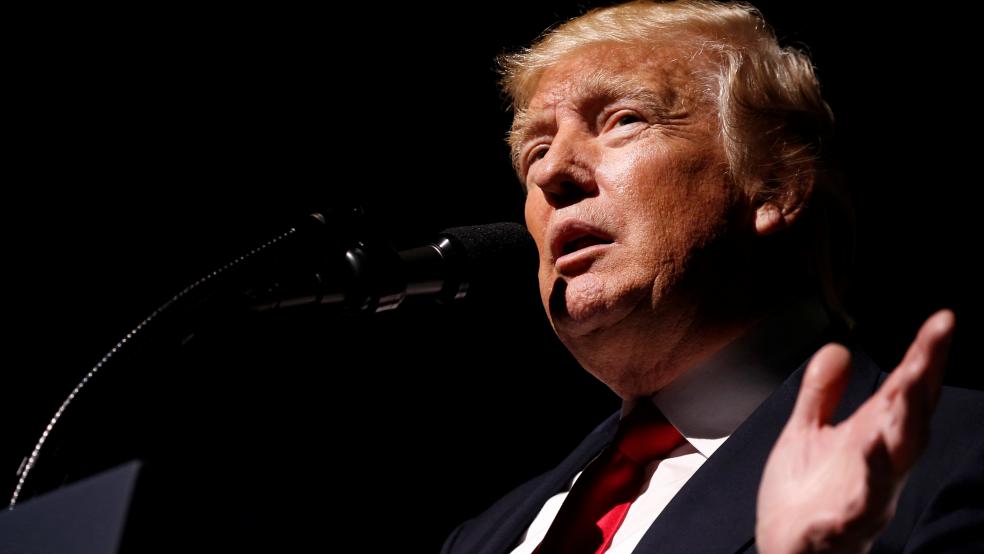Contradicting his own vice president as well as the White House press office, President Trump said in an interview with NBC’s Lester Holt on Thursday that he had made up his mind to fire former FBI Director James Comey prior to receiving a recommendation from Attorney General Jeff Session that he do so.
Trump called Comey a “showboat” in the interview, and multiple times said that he had already made up his mind to fire him when a memo written by Deputy Attorney General Rod Rosenstein and a letter from Sessions arrived at the White House on Tuesday.
Related: The Inside Story on Why Trump Decided to Fire Comey
“I was going to fire Comey,” Trump told Holt. “My decision.”
Holt sought to clarify -- was Trump saying that the documents from the Justice Department had no bearing on the final outcome?
“I was going to fire regardless of recommendation,” Trump said, later repeating the statement.
Ever since the surprise termination of Comey, the White House has been trying to convince a skeptical public that the decision to fire him came not from Trump but from the Justice Department, and particularly from Rosenstein, a 27-year veteran of the department who came to his job with considerable respect from both Democrats and Republicans.
Related: Special Prosecutor? Independent Counsel? Special Counsel? What’s the Difference?
On Capitol Hill Wednesday, Vice President Mike Pence said that the decision to fire Comey had only been taken at Rosenstein’s urging.
“Let me be very clear that the president’s decision to accept the recommendation of the deputy attorney general and the attorney general to remove Director Comey as the head of the FBI was based solely and exclusively on his commitment to the best interests of the American people and to ensuring that the FBI has the trust and confidence of the people this nation,” he told reporters.
White House communications staff, including Press Secretary Sean Spicer and his deputy, Sarah Huckabee Sanders, similarly claimed that the decision to fire Comey came only after the DOJ recommendations, and Sanders suggested that the deputy attorney general had taken it upon himself to draft the memo attacking Comey, and was not asked to do it by the White House.
Related: With Comey in the Spotlight, the Trump Agenda Is Fading Fast
It was just the latest example of the White House’s rationale for the Comey firing falling to pieces in a very public way.
In testimony before the Senate Intelligence Committee on Thursday morning, Acting FBI Director Andrew McCabe directly contradicted several claims that Trump and his staff have made over the past few days. He challenged White House claims that Comey had lost the support of the FBI’s rank and file, insisting that the former director “enjoyed broad support within the FBI and still does to this day.”
He dismissed Huckabee Sanders suggestion from Wednesday that an ongoing FBI investigation into possible ties between the Trump presidential campaign and Russian intelligence services was “probably one of the smallest things that they've got going on their plate.”
McCabe countered that the probe is considered “highly significant” within the FBI.
However, he did push back against two lines of attack that critics of the president have been using. First, he denied that the firing of Comey would have any impact on the investigation, addressing speculation that the firing happened in order to derail the probe. Second, he said that the investigation has all the resources it needs. This appears to contradict multiple media reports that Comey had requested additional resources be committed to expand the investigation, only to be fired days later.





